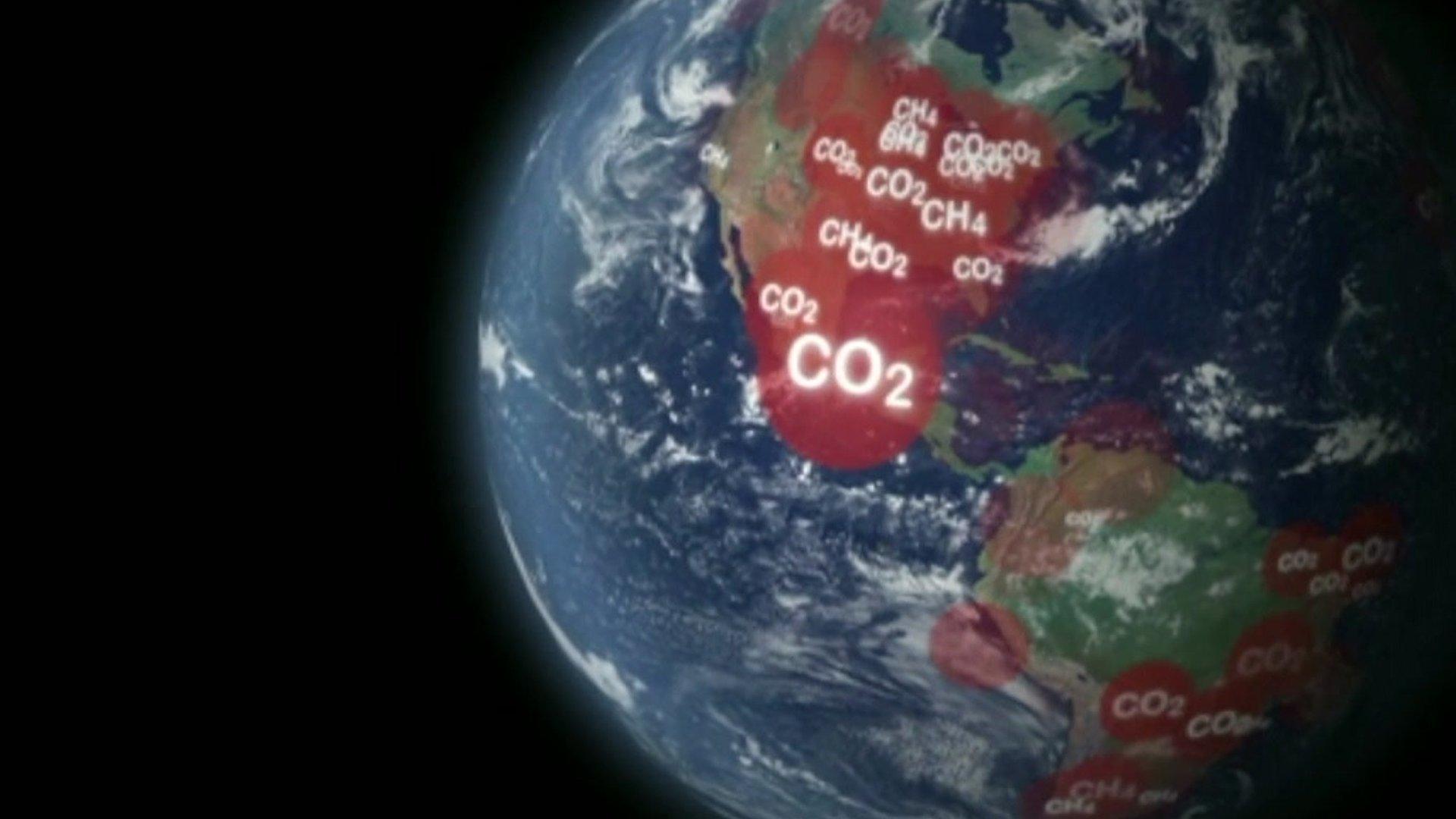Pipeline network planned to cut greenhouse gas emissions from industry
- Published
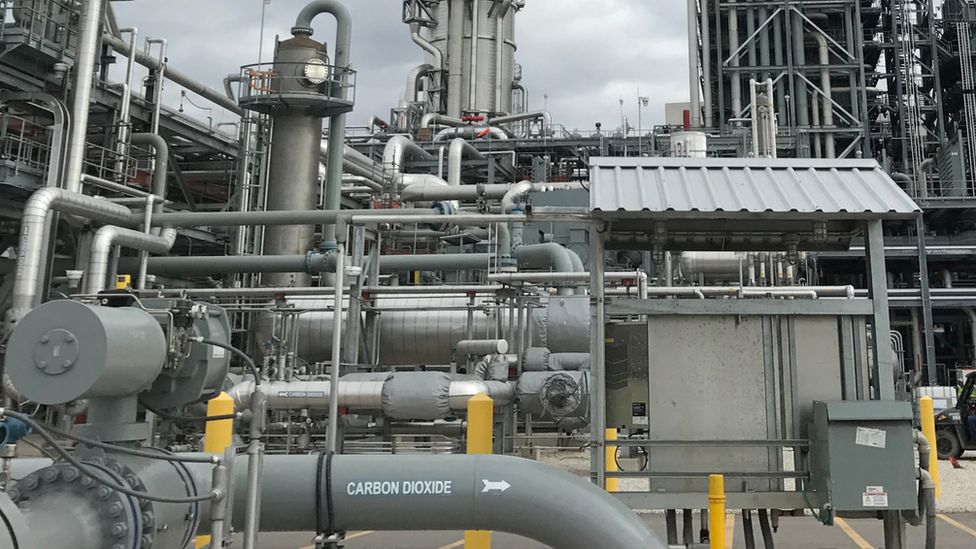
The carbon dioxide would be captured at cement and lime sites before being fed into pipes
Industrial sites in Staffordshire, Cheshire and Derbyshire are aiming to set up a network of pipes to collect carbon dioxide emissions and pump it to be stored under the Irish Sea.
The "Peak Cluster" group is made up of five cement and lime plants plus a waste power plant near Northwich.
The aim is to have the pipelines up and running by 2030 with units set up at those sites to capture the emissions.
It could cut three million tonnes of emissions each year, the group claimed.
Progressive Energy, the firm behind the project, said it would help the UK achieve "net zero" greenhouse gas emissions by 2050.
The cement and lime plants in the Peak District and Staffordshire Moorlands are owned by Tarmac, Breedon, Lhoist and Aggregate Industries.
The would be joined by the Lostock Sustainable Energy Plant plant in Cheshire, due to become operational in 2025.
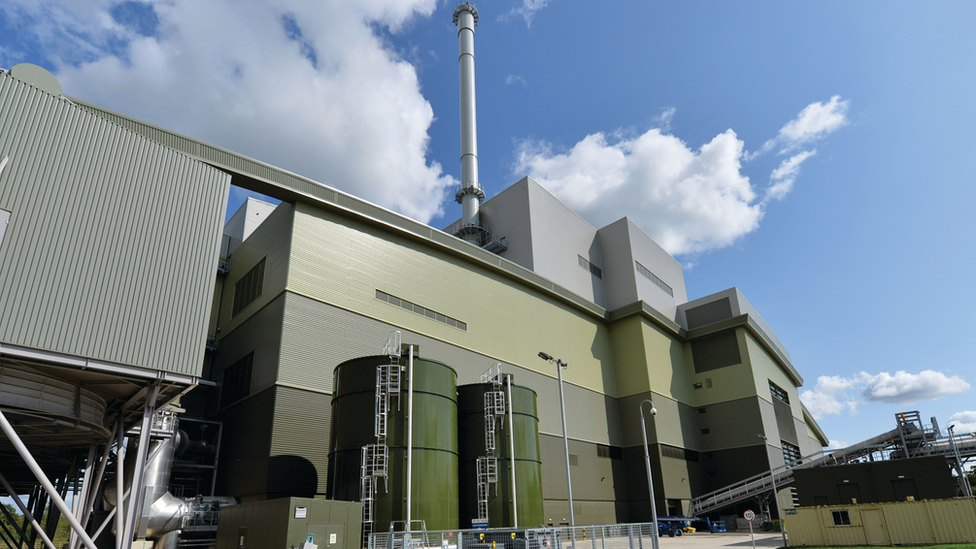
The Lostock Sustainable Energy Plant would also send gas into the pipeline, the group said
The underground pipes will feed into one of two existing storage sites in the Irish Sea, at locations which once held natural gas.
Project director John Egan from Progressive Energy said the scheme was still in its early stages, but would make a "crucial contribution" to driving down harmful emissions.
Seabed sites for storing captured carbon, to remove climate damaging gases from industrial sites, are seen by many scientists as important in reducing emissions to net-zero.
But there have been warnings about the potential for CO2 leakage if the correct sites are not chosen.

Follow BBC West Midlands on Facebook, external, Twitter, external and Instagram, external. Send your story ideas to: newsonline.westmidlands@bbc.co.uk, external
- Published11 December 2023
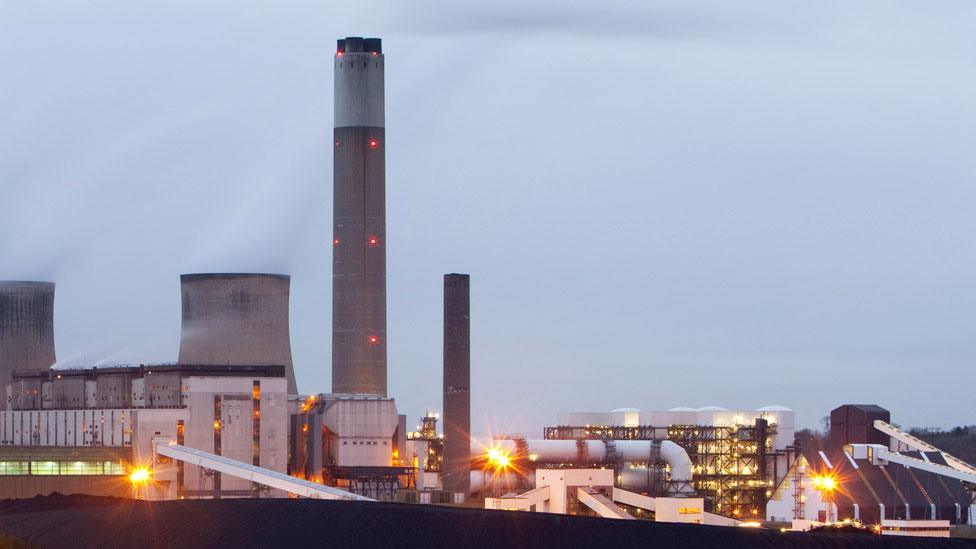
- Published31 October 2022
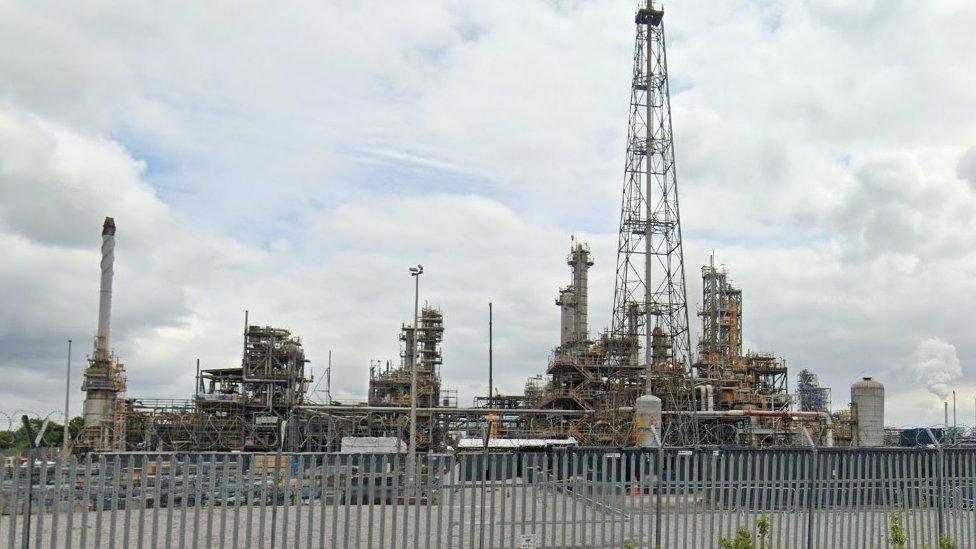
- Published24 June 2022
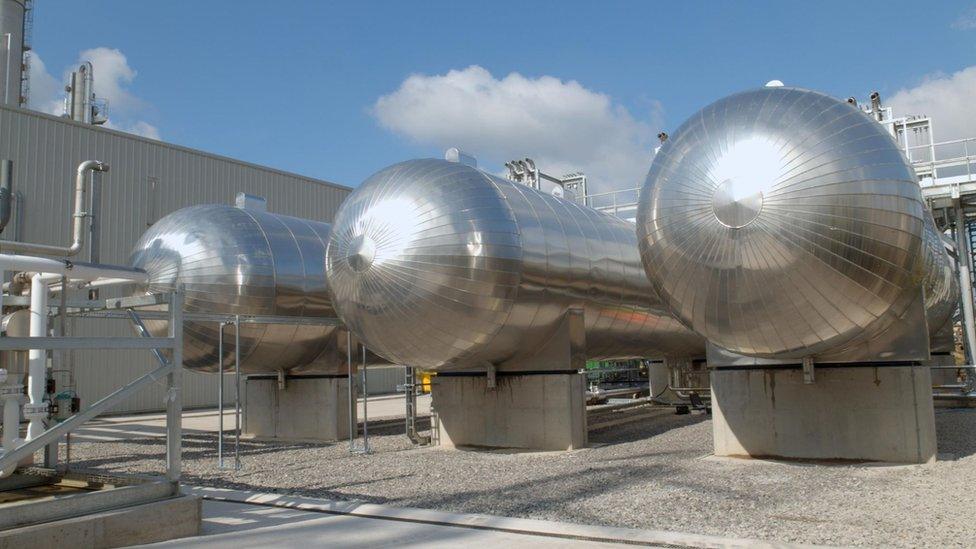
- Published14 June 2022
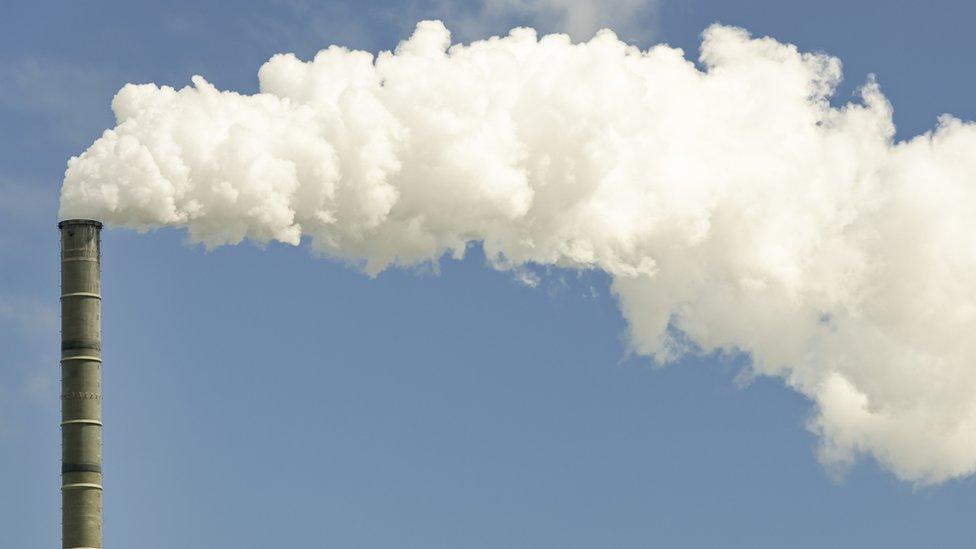
- Published26 January 2022
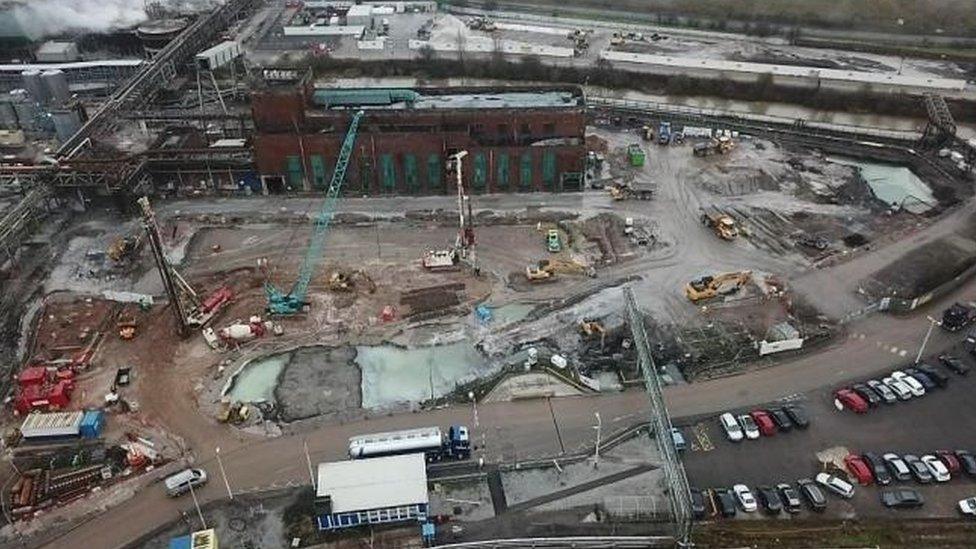
- Published3 April 2019
